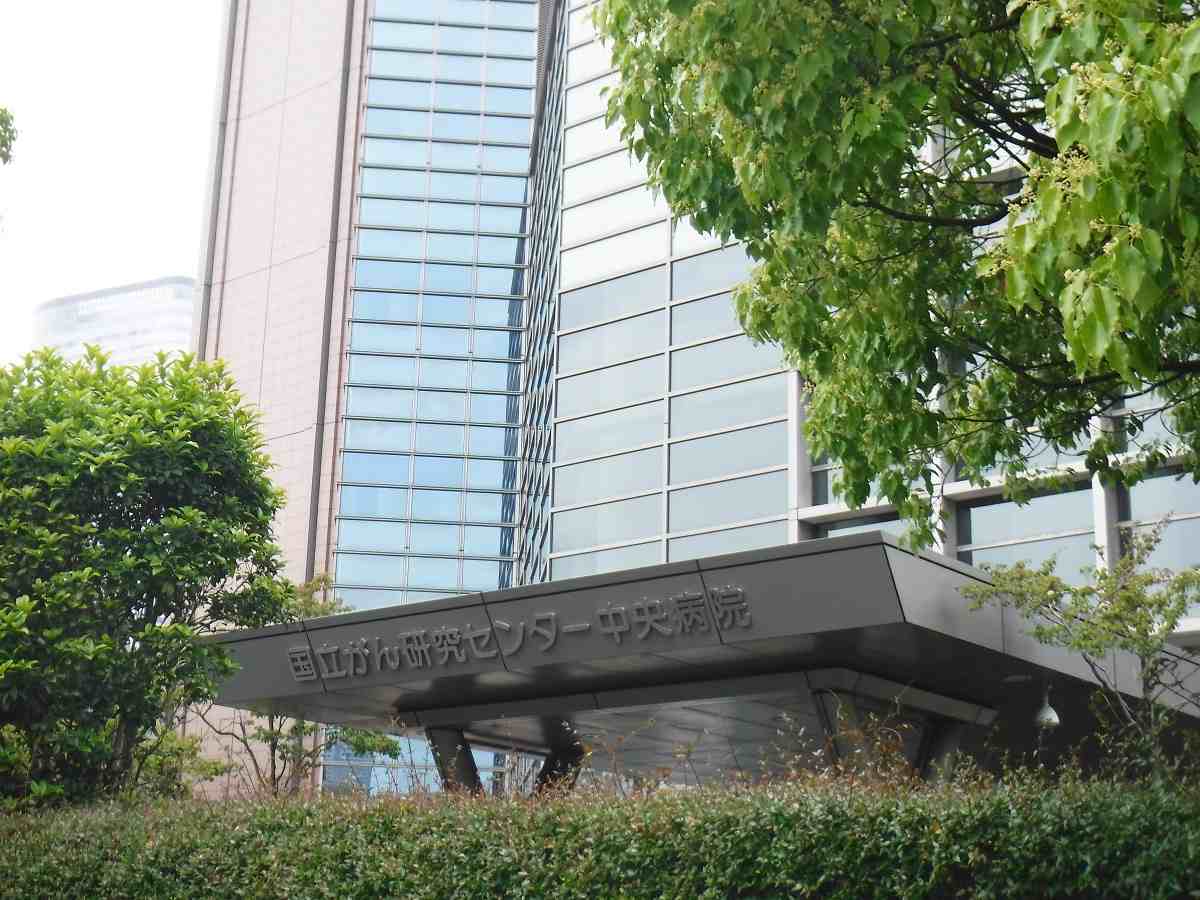Researchers to Apply Genome Analysis to Childhood Cancers; Goal is Quick Identification of Best Drugs for Treatment

National Cancer Center Hospital in Chuo Ward, Tokyo, in May 2021
13:51 JST, September 19, 2023
While it is a simple fact that every case of cancer begins with a genetic mutation that occurs when cells divide, it is a complex reality that types of cancer — and the right drugs for treating them — vary depending on the specific type of mutation. A team of researchers is working to address this problem via genome analysis of pediatric cancer patients.
As early as November, researchers from the University of Tokyo Hospital, the National Cancer Center and other institutions are to embark on research on whole genome analysis of pediatric cancer patients to help diagnose and treat cancers that affect children. The team’s goal is to confirm the efficacy of whole genome analysis, put the analysis into practice and, in the future, establish a system in which most patients can be diagnosed using this analysis.
Cancer begins when cells in the body become abnormal because of a mistake in copying a gene during cell division and proliferate out of control. By identifying the particular mutation, genome analysis leads to the selection of the best treatment for each patient.
Pediatric cancer, with 2,000 to 2,500 new cases diagnosed each year, is a general term for cancers that develop in children under the age of 15. The affected population is small and diverse, making accurate diagnosis difficult.
As part of the government’s 2019 action plan for whole genome analysis, the team will receive research funding from the Japan Agency for Medical Research and Development.
Gene panel testing, which has been covered by insurance since 2019, examines some of the genetic mutations associated with cancer, but advances in technology have now made it possible to analyze the entire genome. The panel test was developed primarily for adults, and it is believed that some genetic mutations unique to pediatric cancer can only be detected by whole genome analysis.
About 20 university hospitals, including those of the University of Tokyo and Kyoto University, as well as hospitals specializing in pediatric cancer treatment, will participate in the research. Among other goals, they hope to determine how well they can detect genomic abnormalities that can be diagnosed and treated.
Tissues and other specimens containing cancer cells sampled from patients at each medical institution will be collected at the National Center for Child Health and Development and sent to a private laboratory for analysis.
The National Cancer Center will analyze the data and a group of about five experts in pediatric cancer and genomics, led by the University of Tokyo Hospital, will discuss treatment methods for each case based on clinical information such as the patient’s symptoms. The patient’s doctor will then explain the potential treatments and other information to the patient’s family.
The research results will also be anonymized and made available to pharmaceutical companies and research institutions for use in, among other things, the development of new pediatric medicines. The team envisions expanding the number of eligible patients in fiscal 2024 and beyond.
“We would like to make whole genome sequencing a standard test so that pediatric cancer patients can have it covered by their insurance, leading to the best possible treatment,” said University of Tokyo Prof. Motohiro Kato, the team leader.
Top Articles in Science & Nature
-

Japan Institute to Use Domestic Commercial Optical Lattice Clock to Set Japan Standard Time
-

Japan to Face Shortfall of 3.39 Million Workers in AI, Robotics in 2040; Clerical Workers Seen to Be in Surplus
-

Record 700 Startups to Gather at SusHi Tech Tokyo in April; Event Will Center on Themes Like Artificial Intelligence and Robotics
-

iPS Treatments Pass Key Milestone, but Broader Applications Far from Guaranteed
-

iPS Cell Products for Parkinson’s, Heart Disease OK’d for Commercialization by Japan Health Ministry Panel
JN ACCESS RANKING
-

Japan PM Takaichi’s Cabinet Resigns en Masse
-

Japan Institute to Use Domestic Commercial Optical Lattice Clock to Set Japan Standard Time
-

Israeli Ambassador to Japan Speaks about Japan’s Role in the Reconstruction of Gaza
-

Man Infected with Measles Reportedly Dined at Restaurant in Tokyo Station
-

Videos Plagiarized, Reposted with False Subtitles Claiming ‘Ryukyu Belongs to China’; Anti-China False Information Also Posted in Japan





















